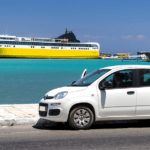Recently, the European Commission released its 2018 report on the Safety Gate for dangerous products, the former Rapid Alert System.
The report shows that authorities exchanged 2,257 alerts on dangerous products. Toys‘ belonged to the most notified product category (31%), followed by ‘motor vehicles’ (19%), and ‘clothing, textiles and fashion items’ (10%), while the main risks flagged were chemical risks and injuries (25% each) followed by the choking risk for children (18%).
Věra Jourová, Commissioner for Justice, Consumers and Gender Equality said: “The Safety Gate is a key tool to protect Europeans from dangerous products and it really works. With more than 2,000 alerts and nearly double as many recalls and removals from the market, the report shows effective enforcement of the rules. We will continue to work with national authorities and third countries to keep all European consumers safe.”
Product recalls are one of the most common measures to reduce the risks posed by dangerous products, however the proportion of products successfully recovered from consumers remains generally low. The results of a new survey on the issue show that aa third of the respondents consciously continue to use recalled products, suggesting that recall notices may not have much effect on consumers and/or that the risk may not be communicated clearly enough.
More than half of all the detected dangerous products come from China. Cooperation with Chinese authorities in the product safety field continues to be a priority, but the results are mixed. The Commission continues to work with the competent Chinese authorities on this. This includes raising awareness about the product safety rules that need to be met when selling to EU consumers.
Background
Since 2003, the Rapid Alert system ensures that information about dangerous non-food products withdrawn from the market and/or recalled anywhere in Europe is quickly circulated between Member States and the European Commission. This way, appropriate follow-up action (ban/stop of sales, withdrawal, recall or import rejection by Customs authorities) can be taken everywhere in the EU. The Rapid Alert System was renamed the Safety Gate by the European Commission.
The Safety Gate has a dedicated public website which provides access to weekly updates of alerts submitted by the national authorities participating in the system. Every week, around 50 alerts are registered and published on the web.
Businesses also can use the Business Gateway to quickly and efficiently warn national authorities about a product that they have put on the market that might be unsafe.
Más información
Access the news
Related factsheet: Sistema de Alerta Rápida de la UE para productos peligrosos no alimentarios: Resultados por países en 2018







Leave a Reply